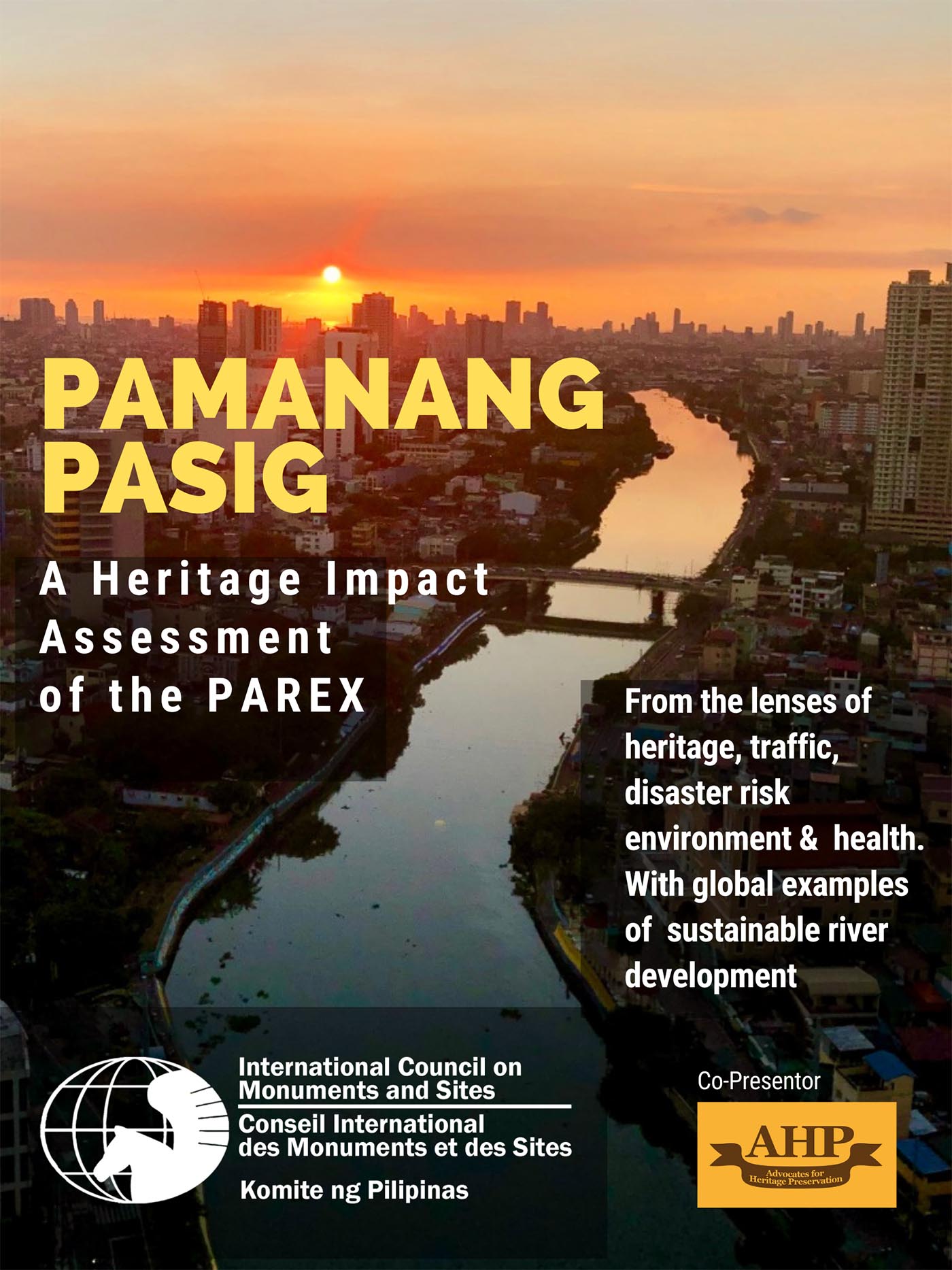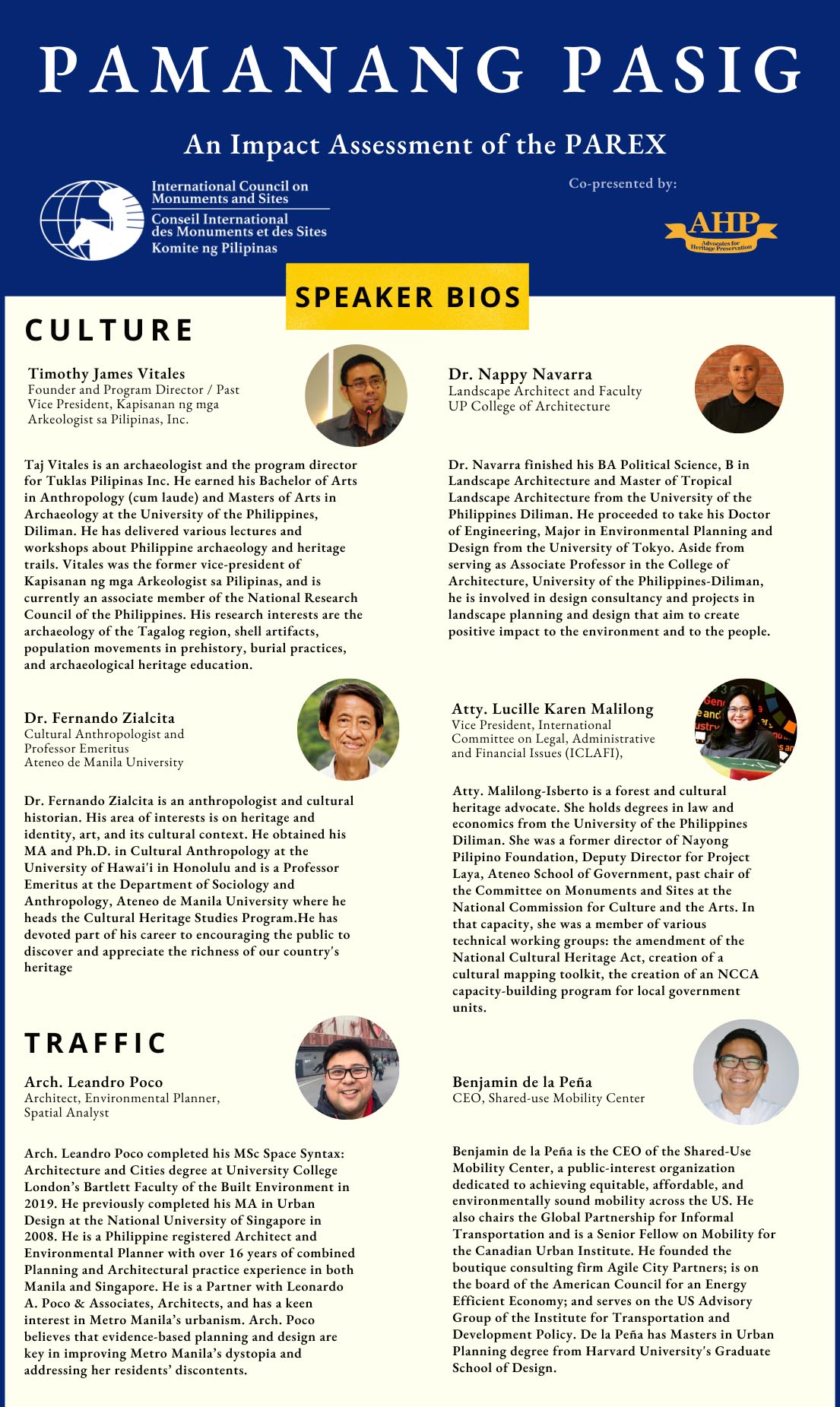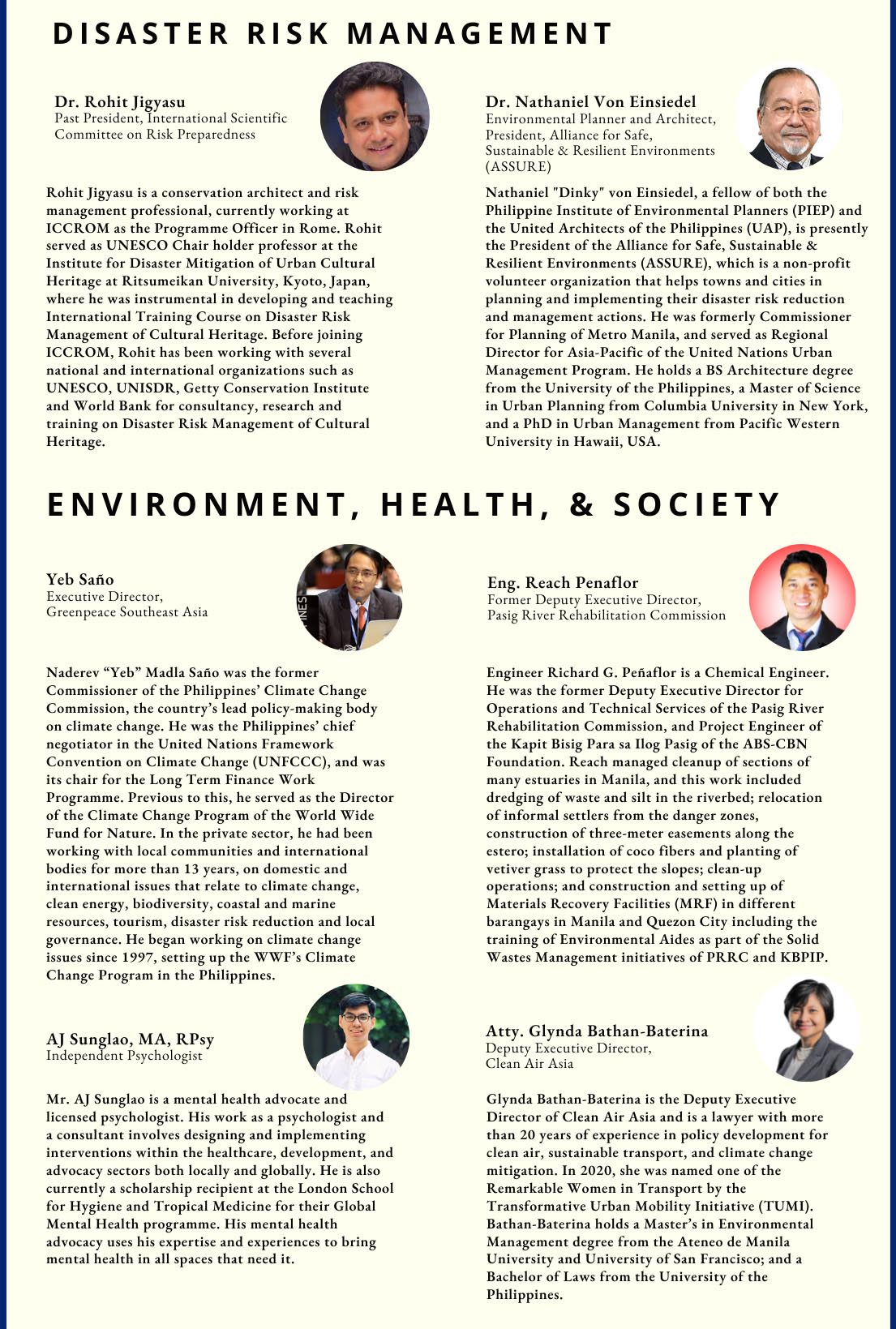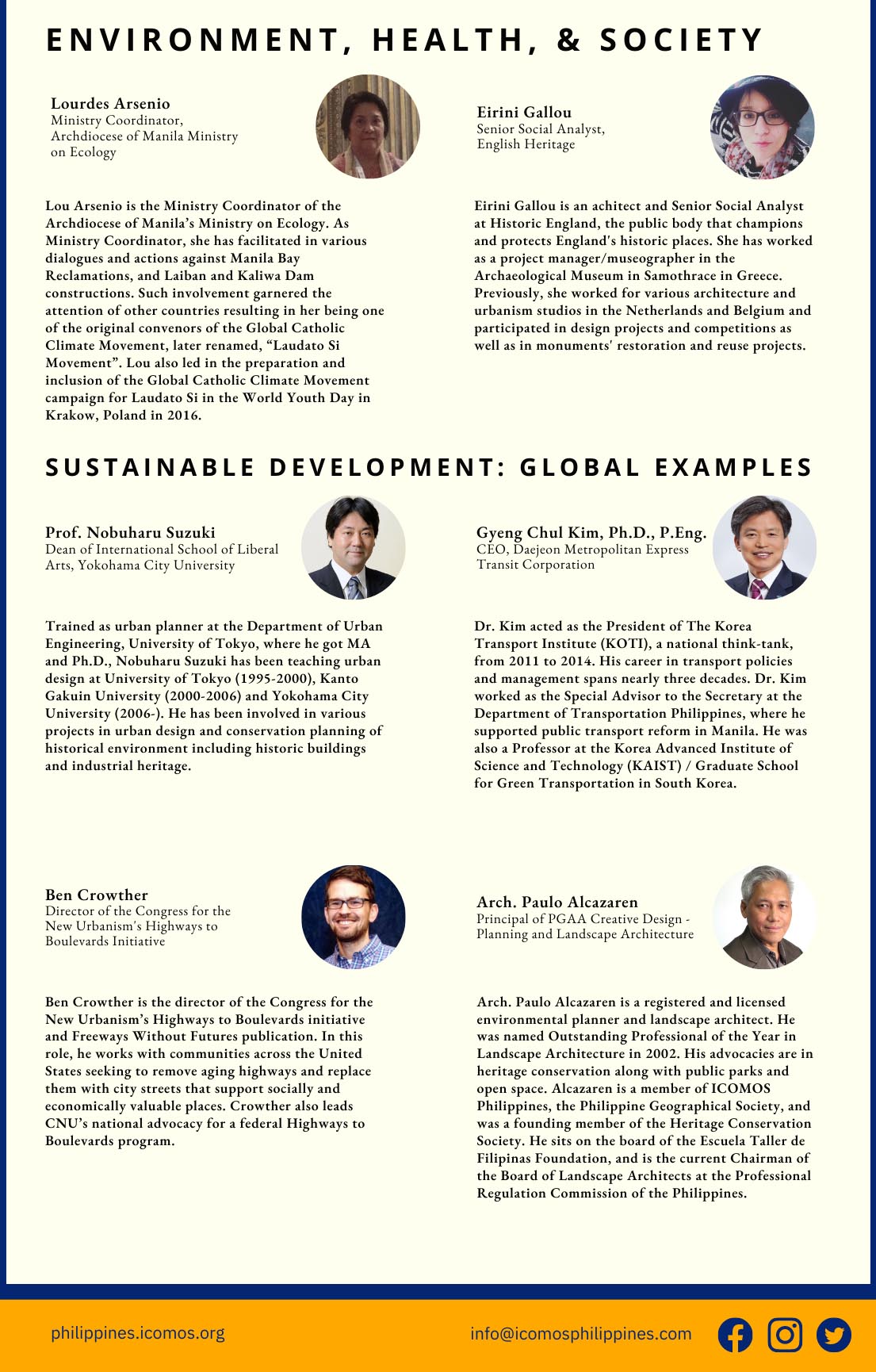PAMANANG PASIG
A Heritage Impact Assessment of the PAREX

An upcoming forum to discuss the effects of what is increasingly becoming a controversial public project – the Pasig River Expressway (PAREX), a 19.37 km, 6 lane elevated expressway over the Pasig River. Many believe it is a good idea.
We are sacrificing our river heritage to solve the traffic problem. What are the costs?
PAMANANG PASIG is a dialogue on the impact of the PAREX on our heritage, the Pasig River. Speakers discuss its historical, aesthetic and social values, and the impact PAREX will have on these values. Impact on traffic, on disaster risk management, on health, ecology, and segments of society. Alternate uses for our river heritage, as well as global examples of sustainable development of urban rivers will be presented.
What are undiscussed but potential repercussions of this initiative, such as in times of disaster, or in the present reality of climate change? Is the Pasig River biologically dead? What might we learn from other countries that have constructed expressways over or beside their urban rivers in the spirit of development decades ago, but are now tearing them down? Expert speakers from the Philippines, the U.S., Japan, and South Korea provide facts and perspectives on these issues.
SAVE THE DATES!
Nov 23, 2021: Culture
Nov 25, 2021: Traffic and Disaster Risk Management
Nov 29, 2021: Environment, Health and Society
Dec 1, 2021: Sustainable Development: Global Examples
*all talks at 7:00-9:00 pm.
Attendance is free.



Organized by
International Council on Monuments and Sites (ICOMOS)
An international NGO and advisory body to UNESCO on world heritage. It has 10,000 members in 153 countries, working through national and international scientific committees to promote theory, method and science for the conservation and protection of cultural heritage places (monuments, architectural, archaeological sites, and man-made landscapes).
The only global non-government organization of this kind, the diverse local membership represents the multidisciplinary thinking that sustainable restoration requires. ICOMOS has historians, engineers, community development specialists, architects, public officials, economists, planners and conservators. ICOMOS assists in the growth of the country’s nascent preservation field by bridging international standards to local contexts, and providing information exchange through conferences, field schools, roundtable discussions with decision-makers, and mentorship of the youth.
